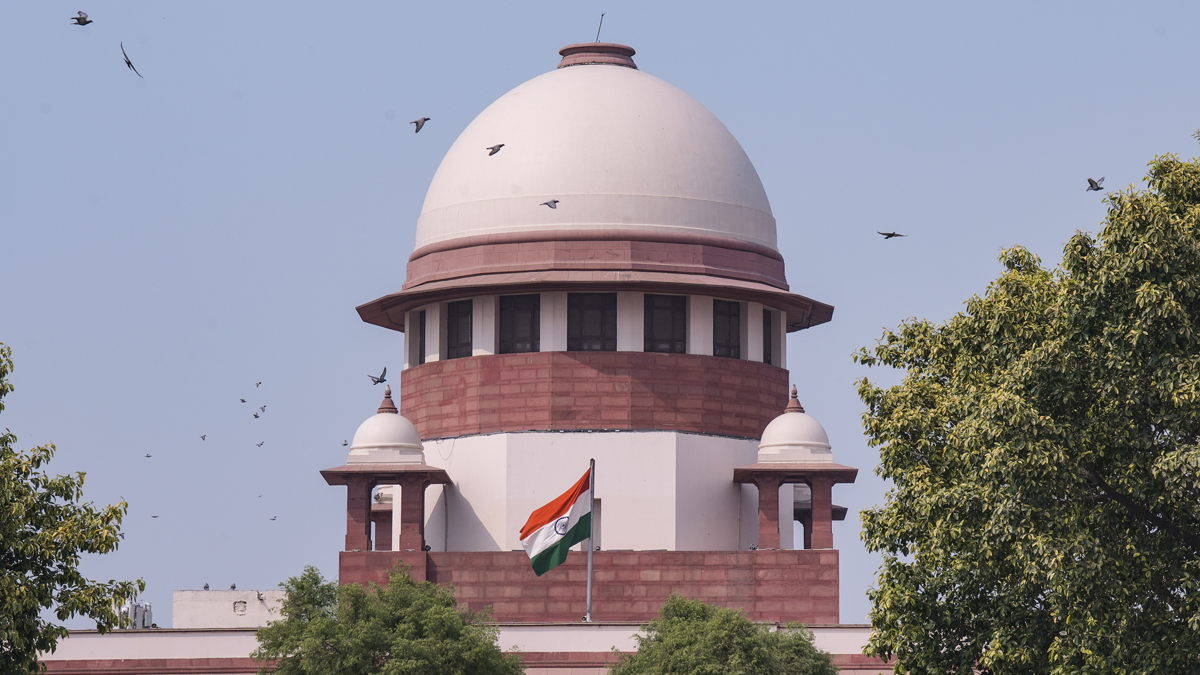Justices N.V. Anjaria, Vijay Bishnoi, and A.S. Chandurkar: All you need to know
 New Delhi: View of the Supreme Court of India, in New Delhi, Wednesday, April 16, 2025. The apex court has begun hearing on a batch of petitions challenging the constitutional validity of the Waqf (Amendment) Act, 2025. (PTI Photo/Manvender Vashist Lav)(PTI04_16_2025_RPT222B)
New Delhi: View of the Supreme Court of India, in New Delhi, Wednesday, April 16, 2025. The apex court has begun hearing on a batch of petitions challenging the constitutional validity of the Waqf (Amendment) Act, 2025. (PTI Photo/Manvender Vashist Lav)(PTI04_16_2025_RPT222B)
The Supreme Court of India on Friday, welcomed three new justices N.V. Anjaria, Vijay Bishnoi, and A.S. Chandurkar, elevating the court’s strength to 34, the maximum sanctioned limit.
Their appointments, recommended by the Supreme Court Collegium under Chief Justice B.R. Gavai, bring diverse expertise. The Court will have one more vacancy soon with the retirement of Justice Bela M Trivedi on June 9. CJI Gavai administered the oath to the new judges. Justice Bishnoi took the oath in Hindi.
Justice N.V. Anjaria, previously the Chief Justice of the Karnataka High Court, hails from the Gujarat High Court, where he began his judicial career. Born in 1965, Anjaria graduated in law from Gujarat University and enrolled as an advocate in 1989. His practice spanned constitutional, civil, and service matters, earning him a reputation for clarity and fairness. Appointed as a judge of the Gujarat High Court in 2011, he rose to become its Chief Justice in 2024 before his elevation to the Supreme Court. Known for his balanced approach, Anjaria’s judgments often emphasize constitutional propriety and judicial restraint.
Justice Vijay Bishnoi, formerly the Chief Justice of the Gauhati High Court, brings a wealth of experience from the Rajasthan High Court, his parent court. Born in 1967, Bishnoi completed his LL.B. from the University of Jodhpur and began practicing in 1992, focusing on civil, criminal, and tax law. Appointed as a judge in the Rajasthan High Court in 2013, he became Chief Justice of Gauhati in 2024. Bishnoi’s tenure reflects a commitment to judicial efficiency, particularly in clearing case backlogs in the Northeast.
Justice A.S. Chandurkar, elevated from the Bombay High Court, is known for his meticulous legal reasoning. Born in 1970, he graduated from Nagpur University and enrolled as an advocate in 1993. His practice covered constitutional, commercial, and arbitration law, earning him a senior advocate designation in 2017. Appointed to the Bombay High Court in 2019. His elevation adds a younger voice to the court, with a term extending to 2035, ensuring long-term impact. These appointments from varied backgrounds spanning Gujarat, Rajasthan, and Maharashtra enrich the court’s perspective.
These appointments were officially approved by the President of India on May 29, following the recommendation of the Supreme Court Collegium dated May 26. The Central Government issued the formal notification on the same day, elevating the three senior High Court judges to the nation’s highest court.
India